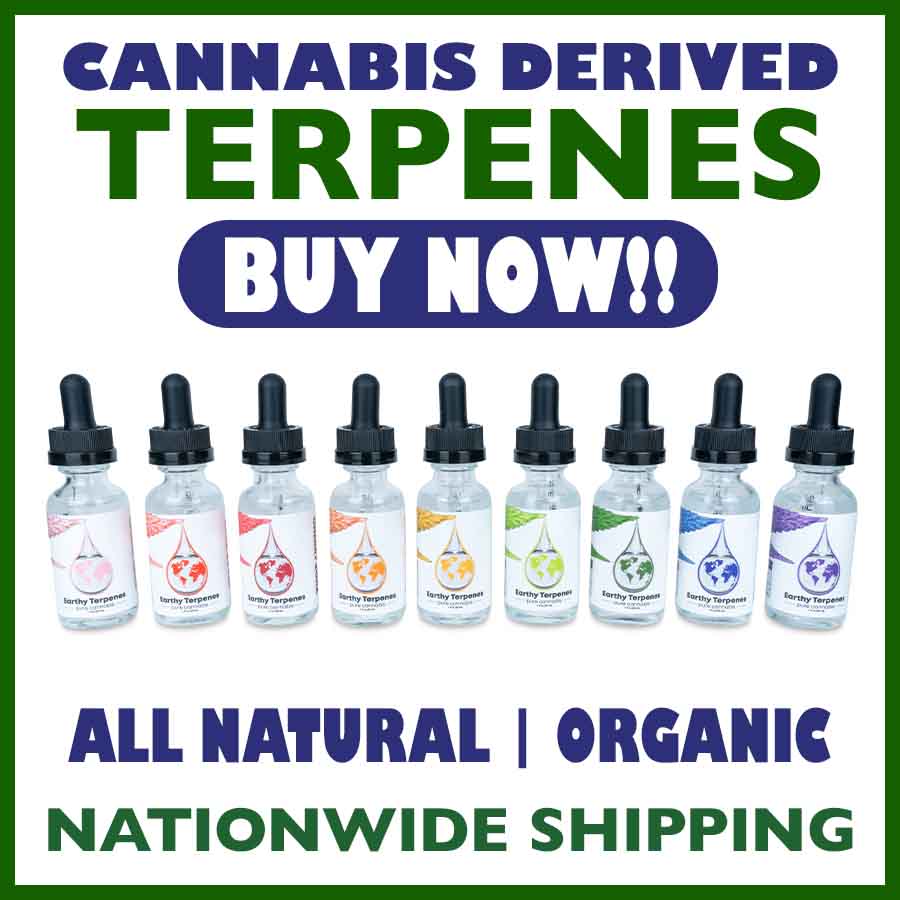The Invigorating Fenchol Terpene

You may not realize it, but you’ve experienced the aromatherapy of fenchol any time you’ve crushed basil leaves on a cutting board to put into a savory dish. Remember that blast of olfactory excitement? That sensation has a lot to do with fenchol.
Likewise, fenchol can add to your enjoyment of certain cannabis strains as well as enhance the aroma of shampoos and cosmetics. Wherever you may find this perky terpene, you’re bound to get hit with that same awakening feeling as with basil.
Here we’ll explore everything you need to know about fenchol and explain why this terpene is one to bookmark.
What are terpenes?
Terpenes are responsible for determining a plant’s smell. Moreover, they serve plants by giving off scents that protect them from predators and help them attract pollinators. Particularly repellent smells, for instance, might act as insect repellents, thereby keeping a plant safe from being eaten. On the other hand, terpenes play a vital role in luring helpful insects to flowers to ensure the plant’s survival through pollination [1].
When you smell a flower or open a bottle of essential oil, you’re inhaling the aromatic natural compounds of the plant into your olfactory neurons. In other words, you’re smelling terpenes. Likewise, the terpene profiles of various cannabis strains determine their distinctive smells and tastes.
Additionally, terpenes have the potential to offer benefits that alter the overall experience of the cannabis plant as terpenes work alongside cannabinoids to amplify the effects in a process called the entourage effect [2].
What is fenchol?
Fenchol is a less common terpene found in cannabis and other plants. Fenchol possesses a piney smell as well as other plants aromas. Prized for its earthy, spicy aroma, fenchol comprises up to 16% of the volatile oils of certain aster species — a genus that produces starlike blooms, such as the purple dome of aster flowers [3]. In contrast to other monoterpenes such as limonene and geraniol, which are notably sweet, fenchol’s aroma possesses a piney, camphor-like essence. It can also carry a camphor-like flavor.
Regarding its chemical composition, fenchol is a monoterpenoid and an isomer of borneol [4] with a molecular structure weight of 154.25 [5]. Used extensively in the the perfume manufacturing industry, fenchol is a naturally occurring enantiomer, which means it is one of two stereoisomers that are non-identical mirror images of each other, much like a person’s right hand is a mirror image of the other, yet because of orientation, not identical [6].
Uses for fenchol
Refreshing, earthy, and an uplifting aroma, fenchol is a popular ingredient in the fragrance industry. A wide spectrum of products may contain fenchol. Laundry detergent, medicines, cosmetics, essential oils, oil derived from plants, and other aromatic substances benefit from its stimulating smell [3].
Some foods contain fenchol through plants like basil or nutmeg. Additionally, extracted fenchol may be added to food as a flavoring.
Cannabis consumers enjoy products that use strains containing high amounts of fenchol because of antioxidant effects and the enlivening feeling evoked by its smell and taste.
Effects of fenchol
Though further research is needed to determine more research on the possible outcomes of fenchol’s efficacy, it is safe to say that fenchol’s place in aromatherapy is known. In other words, the smell alone can have a stimulating or invigorating effect. When consumed in full-spectrum cannabis products, fenchol may work alongside the other chemical compounds present to enhance the effects of cannabinoids such as THC or CBD [2].
The entourage effect
Originally proposed in 1999, the entourage effect describes a mechanism by which the physical properties of a given strain of cannabis, such as terpenes and flavonoids, act synergistically with cannabinoids to modulate the overall effects of the plant, whether those may be mood-altering or boosting [2].
Cannabis strains high in fenchol
A few cannabis strains high in fenchol include:
- Canna Cake – A Sativa-dominant strain with a big flavor, Canna Cake’s lineage results in a rich, spicy aroma with elements of a tangy, piney, citrus-like earthiness.
- Cherry Soda – A robust Indica-dominant hybrid strain, Cherry Soda comprises large buds and heavy trichomes and originates from California’s Ventura Seed Company. The profile is true to the cherry name in flavor and aroma, alongside spicy sweetness and fresh, high citrus notes.
- Hawaiian Haze – An award-winning, Sativa-dominant hybrid strain from Oregon CBD, Hawaiian Haze comes from crossing DC Haze “CC” and Early Resin Berry (ERB). The resulting unique and funky terpene profile evokes the taste of the tropics.
Sources of fenchol
Other than cannabis, fenchol can be found in plants such as:
- Aster flowers
- Eucalyptus leaves
- Wild celery
- Lime
- Nutmeg
- Fennel
- Basil
- Winged prickly ash plant [7]
Bottom line
Fans of fenchol swear by its ability to uplift with its stimulating smell and taste. Whether you lather it into citrus body spray, your hair in an especially herbaceous shampoo or enjoy it in your favorite cannabis strain, fenchol is certain to put a spring in your step and a sparkle in your eye. Check out Earthy’s Sour Special Terpenes!
Top 20 Cannabis Derived Terpenes
Medical Disclaimer / Legal Disclaimer – Information is provided for educational purposes. It does not and is not intended to constitute legal advice or medical advice. We attempt to be accurate and up-to-date, but the legality of cannabinoids and the science of cannabis are evolving. The author is neither a legal professional nor a medical expert. Before buying or using any products, you should check with your local authorities and medical providers.
References
Frequently Asked Questions
What is the difference between CBD and THC?
CBD (cannabidiol) and THC (tetrahydrocannabinol) are both naturally-occurring cannabinoids from the cannabis plant, and both have the same molecular structure. A slight difference in how the atoms are arranged accounts for the differing effects on your body. Read our Guide to CBD to learn more.
Do you get high off of terpenes?
Terpenes can affect how you feel but they don’t get you high. Like receiving a massage with lavender-scented oil, they can help you relax, free your mind and body, and enhance your experience. They also may work alongside cannabinoids and cannabinoid receptors, to elevate the effects of cannabis.
Is cannabis-derived fenchol legal?
Yes, hemp-derived terpenes are federally compliant because they are from hemp (cannabis containing less than 0.3% Delta-9 THC). As long as terpene products conform to the guidelines, they are fully compliant with Farm Bill legal regulations.





